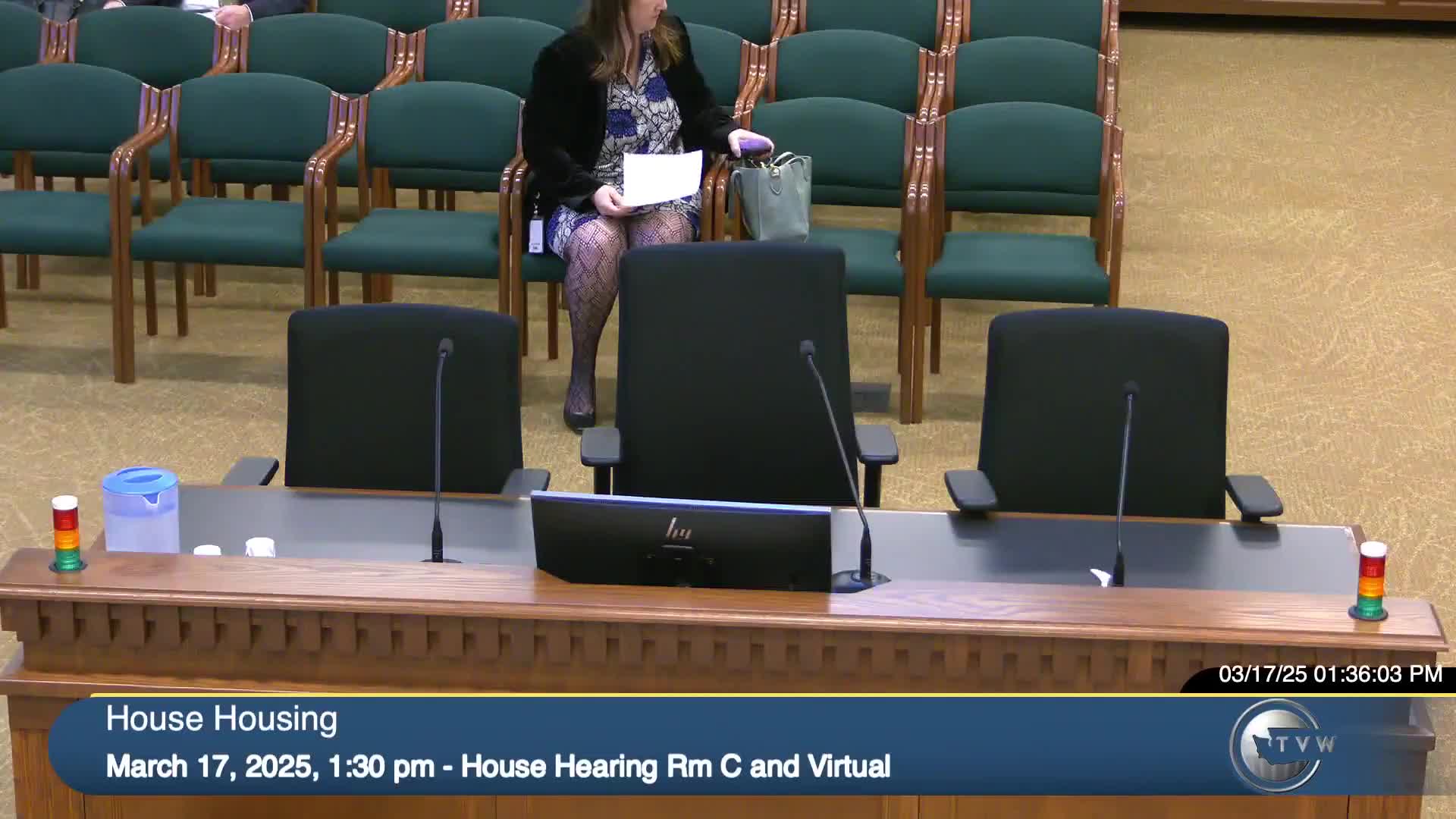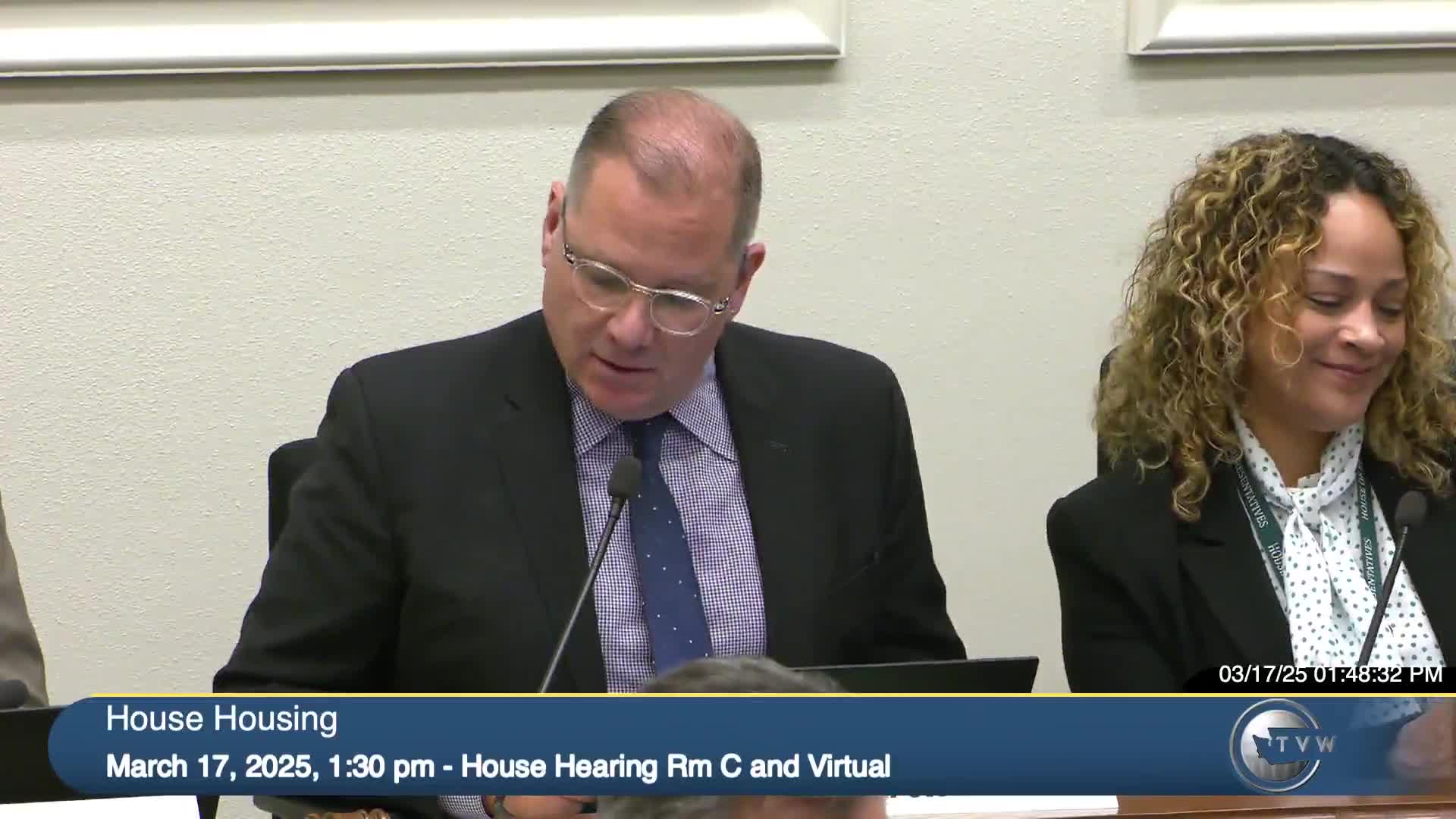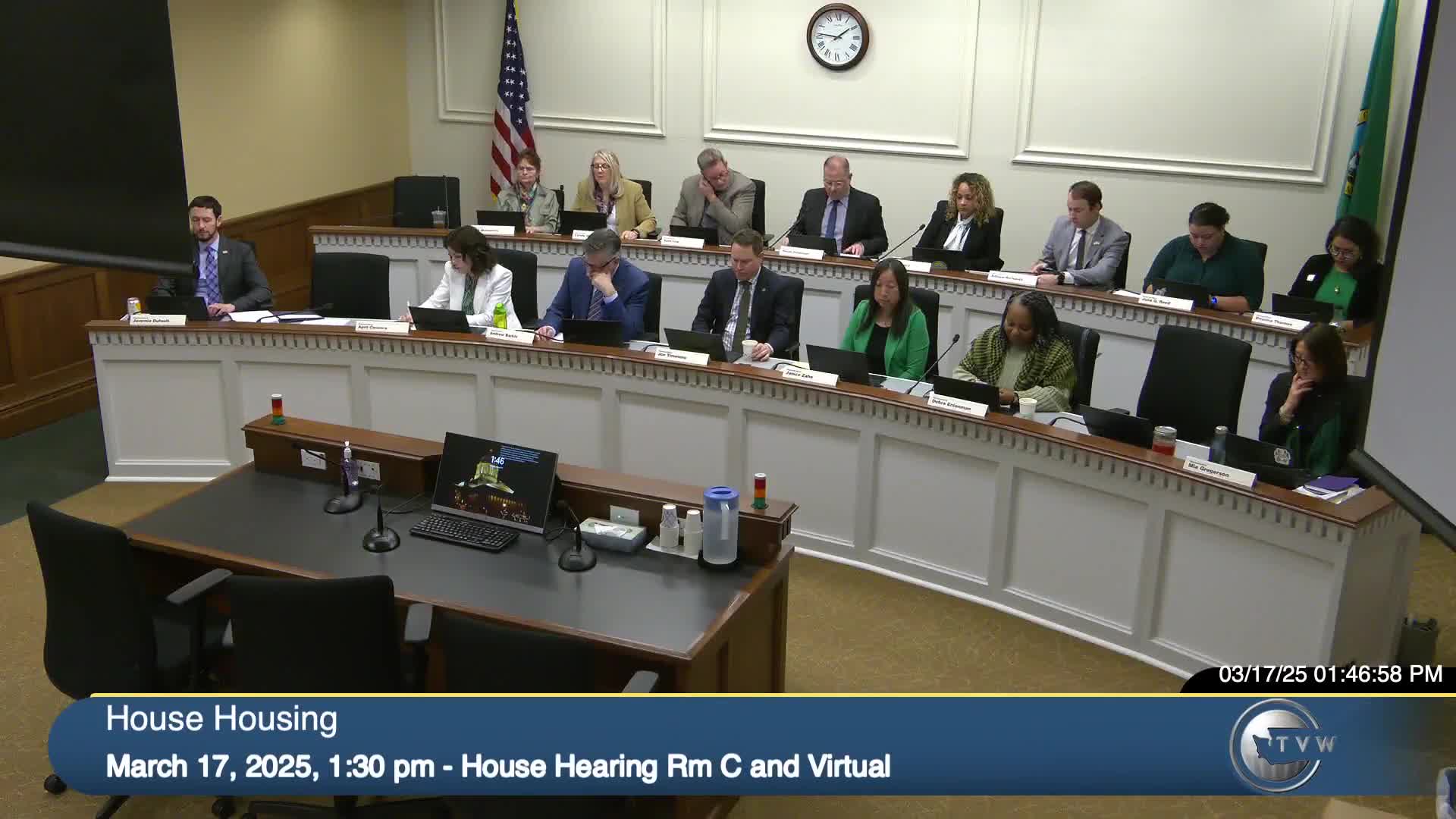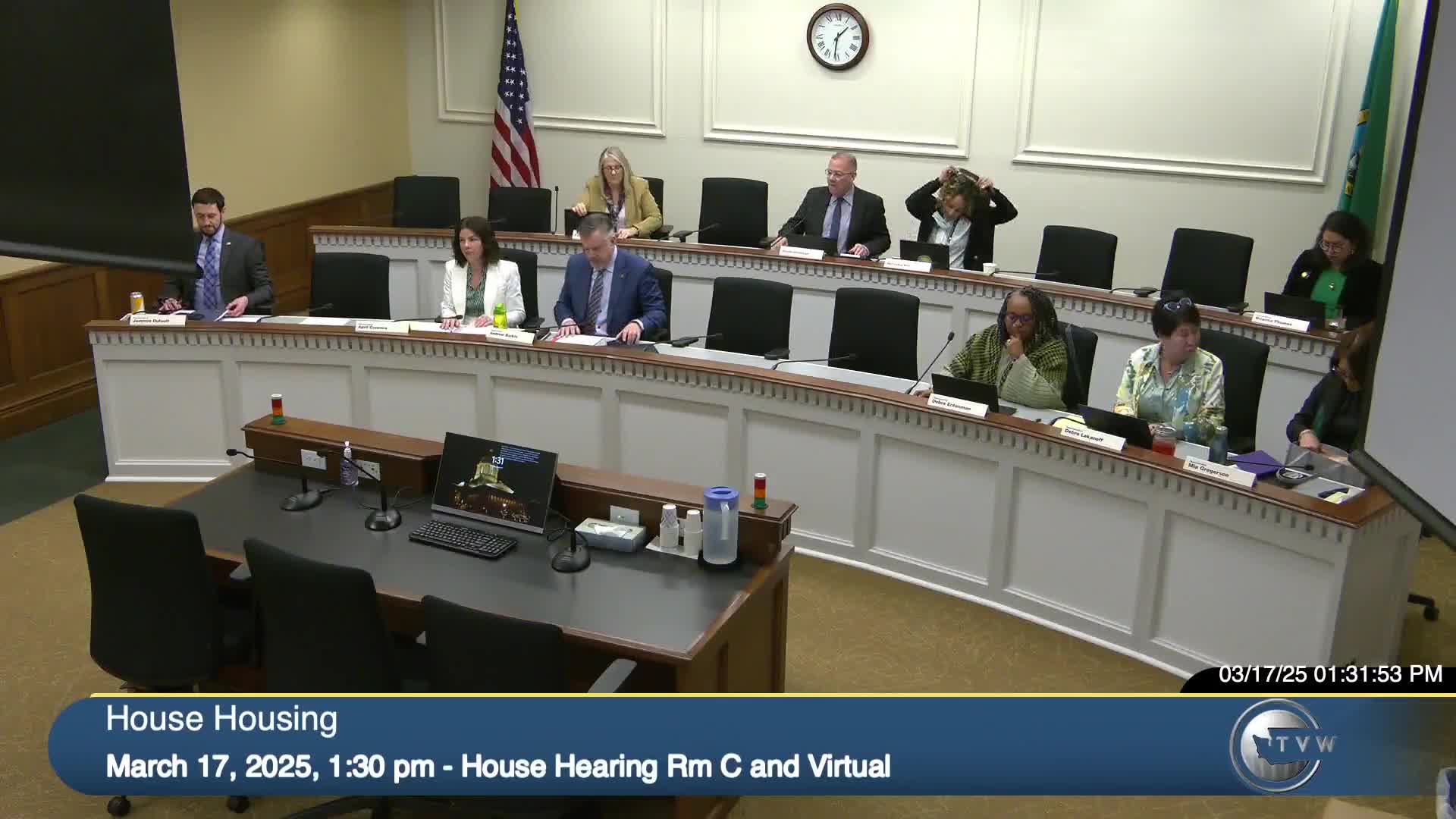Article not found
This article is no longer available. But don't worry—we've gathered other articles that discuss the same topic.

Committee reviews changes to notice and tracking when manufactured-home parks are sold

Committee hears bill to bar certain lease clauses, including class-action waivers and forced "valet garbage" charges

Committee weighs allowing smaller elevators, differing safety standards to expand small-scale multifamily housing

